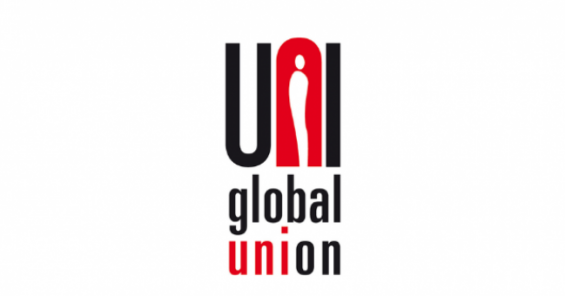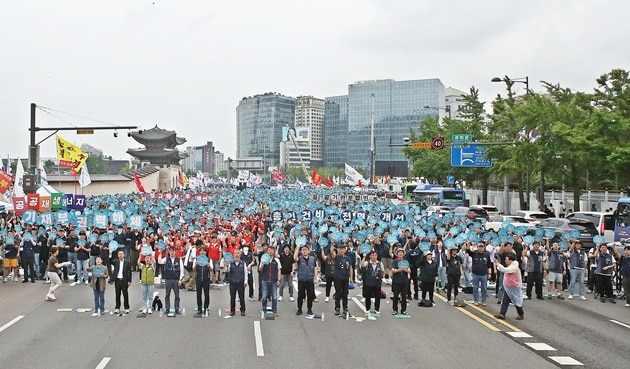THE HAGUE, Sept. 27—In a scathing complaint filed today with the government of the Netherlands, an international coalition of labour unions is calling for an investigation into wide-ranging violations of workers’ rights at IKEA.
The complaint, delivered to the Dutch OECD National Contact Point, details failures by IKEA’s global management to curb vicious anti-union campaigns in the United States, Ireland, and Portugal. IKEA is domiciled in the Netherlands.
UNI Global Union along with the United Food & Commercial Workers (UFCW) from North America; the FNV from the Netherlands; the Mandate trade union from Ireland; and the SITESE trade union from Portugal submitted the filing based on the OECD Guidelines for Multinational Enterprises.
“IKEA knows what it means to have sound industrial relations, and yet it is simply not playing by the rules that govern global corporations,” said Christy Hoffman, General Secretary of UNI Global Union. “The company’s top management repeatedly ignored the red flags that workers and unions have raised about violations of rights in its stores around the world. So we’ve asked the Dutch government to step in to ensure that we can end these unacceptable practices.”
IKEA employees in several countries have sought unionisation to address serious workplace issues such as stressful working conditions, erratic or unfair scheduling, sick leave polices, sexual harassment, and other forms of adverse treatment of workers.
Based on an extensive review of legal filings and dozens of worker interviews, the complaint describes IKEA management’s sophisticated strategies to keep workers from joining or establishing labour unions, in violation of OECD guidelines, including:
U.S. management’s threats and false claims. After workers began organising with the UFCW in 2016, IKEA management in the Stoughton, Massachusetts, store repeatedly misrepresented the economic realities of union membership—giving workers the impression that their wages and conditions would be significantly worse if they voted to form a union. The company also told workers’ that their job security “could be worse” if they unionised. These false claims were regularly made in mandatory captive audience meetings at the workplace, for the purpose of spreading fear and anti-union propaganda.
The US federal government issued a complaint in 2017 against IKEA management’s conduct at the goods flow unit in the Stoughton store, and it scheduled a trial to further adjudicate the matter. However, the trial was cancelled earlier this year as part of the Trump administration’s anti-labour turn—showing the increased need for these problems to be corrected under OECD guidelines.
IKEA’s Irish management creates a repressive, anti-union environment. In 2009, IKEA workers began organising with Mandate in the company’s Dublin store. Management’s response was to create a “repressive and threatening anti-union environment” and denying Mandate staff access to the facility—even physically removing them. Workers—the clear majority temporary employees—were kept in a state of total uncertainty about their hours, the real duration of their employment contracts, and their employment stability in general. According to workers, senior store management were advising them not to align with the union, and employees were genuinely frightened of management retaliation if they joined Mandate.
Portuguese management’s campaign of surveillance and retaliation. In 2013-2014 and again in 2017 until the present, workers at IKEA’s Alfragide store in Lisbon have been organising with the SITESE labour union to gain a collective agreement. However, management has created a climate of fear among workers that they will suffer reprisals if they support the union. Workers claim that the company has retaliated against union supporters by giving undesirable schedules to union supporters or by blocking supporters’ ability to advance professionally.
“The result from all of the badmouthing of unions was clear. A lot of people got scared. After the company’s anti-union scare tactics, people began to flip—even those who went on strike to win union representation,” said Chris DeAngelo, a union supporter at IKEA’s Stoughton store. “It was just too much pressure.”
DeAngelo’s experience is echoed by IKEA employees in Ireland and Portugal. Unions in each country raised concerns with the company’s global management.
The unions filing this complaint say that IKEA is continuing its pattern of labour rights violations in countries throughout the world, and mediation by the Dutch OECD National Contact Point is necessary to make the company live up to its proclaimed principles and international human rights standards.
“This complaint shows that IKEA is failing to operate by its values of ‘honesty,’ ‘respect,’ ‘fairness,’ and ‘integrity’,” said Mari Martens, Head of the Commerce Sector of the FNV. “Because repeated requests to the company’s global management have been disregarded, the Dutch government should use its authority under the OECD guidelines to intervene in this situation and stop the ongoing violations of workers’ right to have a union.”
Governments are obliged to ensure that multinationals based in their country respect the OECD guidelines, which include the freedom of association and other labour rights. A determination that the company has violated the guidelines will be taken very seriously by the investment community as a violation of commonly accepted social responsibility standards.


